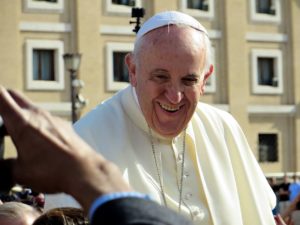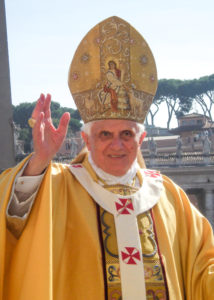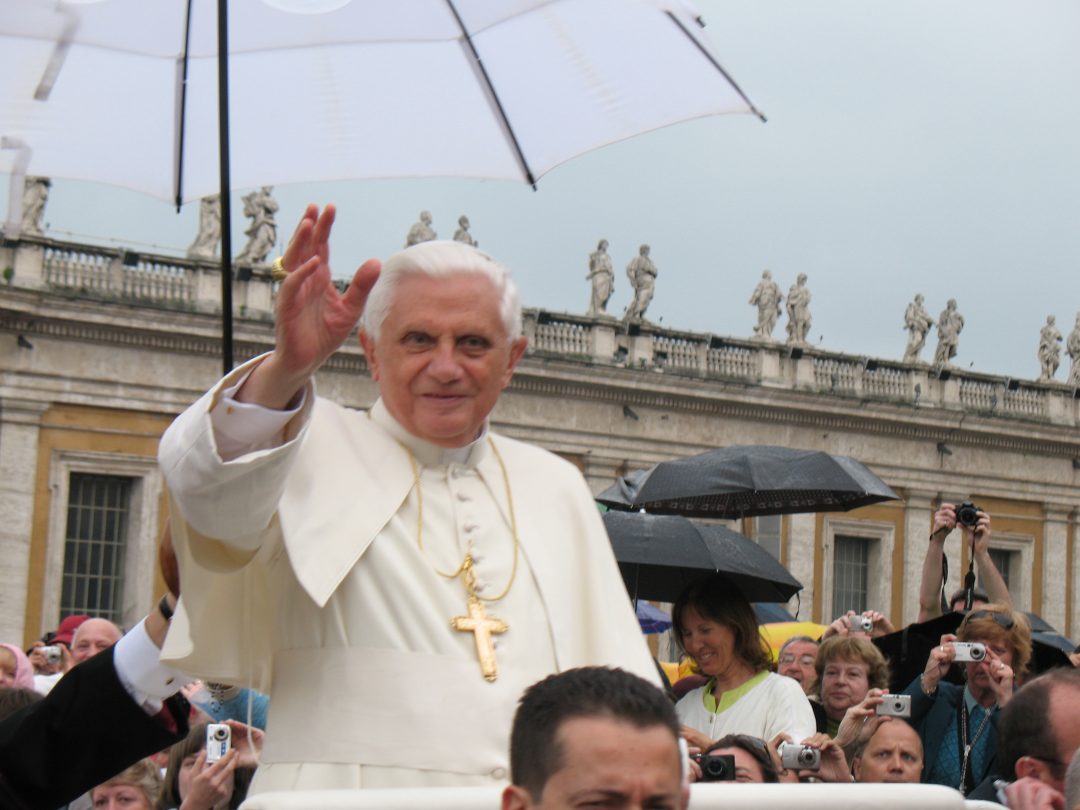Pope Emeritus Benedict XVI has once again been compelled to address allegations that he was forced to step down from the Papacy just on a year ago. Following media speculation which marked the anniversary of his resignation, 86-year-old Benedict has posted a strongly worded rebuttal on the website Vatican Insider, saying that the decision was his alone.
 “There is absolutely no doubt regarding the validity of my resignation from the Petrine ministry,” he wrote in response to suggestions that his decision was not freely made. Church law demands that a pope’s resignation must be as a result of no pressure from others, and were it otherwise there would currently be a diarchy or dual government in the Church. But Benedict has dismissed such speculation as “absurd,” and says his “only purpose” is to pray for his successor, Pope Francis.
“There is absolutely no doubt regarding the validity of my resignation from the Petrine ministry,” he wrote in response to suggestions that his decision was not freely made. Church law demands that a pope’s resignation must be as a result of no pressure from others, and were it otherwise there would currently be a diarchy or dual government in the Church. But Benedict has dismissed such speculation as “absurd,” and says his “only purpose” is to pray for his successor, Pope Francis.
The statement was in response to a report published in the conservative Italian newspaper, Libero, which suggested that the former pope was forced to step down because of scandals in the Vatican. A year before Benedict’s resignation on Feb. 28, 2013, his butler was arrested after leaking sensitive documents to journalists which indicated corruption among prelates, the blackmailing of homosexual clergy and irregularities in Vatican finances. A television program aired in Jan. 2012 called “The Untouchables” first broke the scandal and was followed in quick succession by a number of press reports detailing internal power struggles, allegations of bribery and, in Feb. 2012, rumors of a death threat against Pope Benedict.
From that time onwards, Italian media outlets have occasionally suggested that a faction of prelates determined to remove Benedict from the papacy were behind the leaks which were orchestrated, they say, as a way to put pressure on the aging pontiff. This has always been denied by the Vatican.
The Resignation of Pope Benedict XVI was highly unusual
Nevertheless, the resignation of Benedict XVI was highly unusual. He became the first pope to step down from office since Pope Gregory in 1415 and the first to do so on his own terms since Pope Celestine V in 1294. At the time he cited his reasons as due to old age. “I have come to the certainty that my strengths, due to an advanced age, are no longer suited to an adequate exercise of the Petrine ministry,” he told a gathering of cardinals on Feb. 11, 2013.
 According to Benedict’s private secretary, Archbishop Georg Gaenswein, the tortuous decline in the health of his predecessor, Pope John-Paul II, had a bearing on the decision. “To carry on in the same manner as the predecessor ended, or even to copy him, he didn’t see as his way,” Gaenswein told German media recently.
According to Benedict’s private secretary, Archbishop Georg Gaenswein, the tortuous decline in the health of his predecessor, Pope John-Paul II, had a bearing on the decision. “To carry on in the same manner as the predecessor ended, or even to copy him, he didn’t see as his way,” Gaenswein told German media recently.
The shock resignation took the Vatican into unchartered territory as decisions needed to be hastily made about where the former pope would live, what he should be called, what his role should be, and what he would wear. As it turns out, this final point has proven to be the most controversial.
According to the lengthy Libero report, Benedict still dresses like a pope because that’s how he sees himself, an allegation which the pope emeritus has strongly denied.
“I continue to wear a white cassock and kept the name Benedict for purely practical reasons,” he wrote in his letter to Vatican Insider. “At the moment of my resignation, there were no other clothes available. In any case, I wear the white cassock in a visibly different way to how the Pope (Francis) wears it. This is another case of completely unfounded speculation.”
In the year which has passed since his historic resignation, Benedict has reportedly led a life dedicated to simple pursuits. He makes public appearances only rarely and is content to spend his days in silent prayer, playing the piano, and caring for his pet cats.






